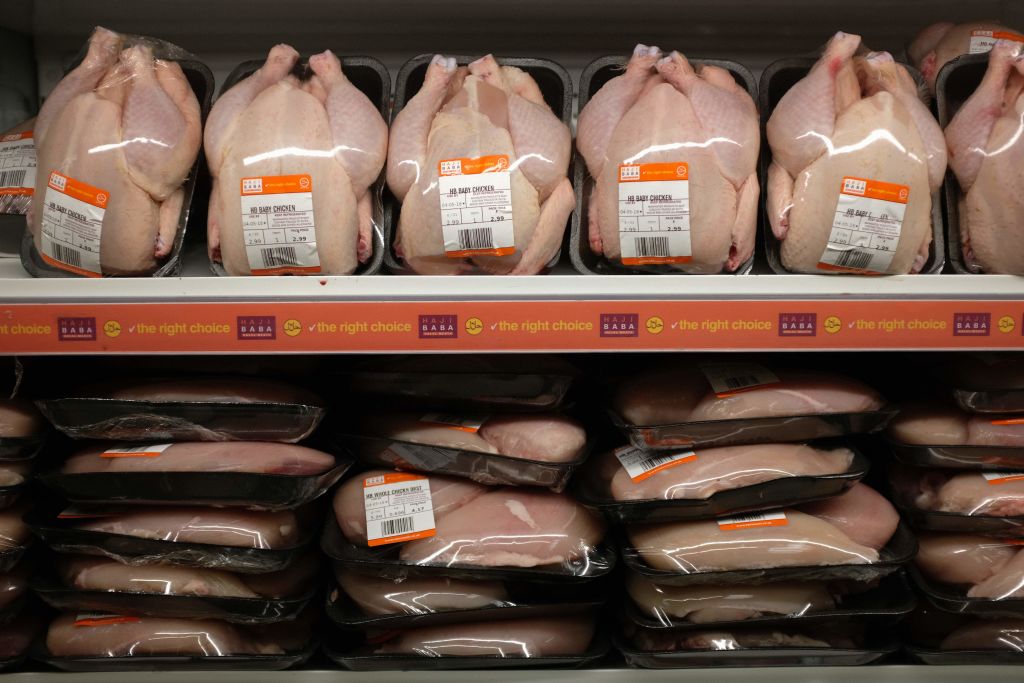One of the greatest prizes from Brexit is the opportunity to make the Global Britain aspiration a reality. Included is a leadership role at the World Trade Organisation (WTO) where the UK, the fifth biggest economy in the world, could help drive much-needed progress to facilitate global trade.
Leadership, however, requires respect to back it up. In trade terms, that means walking the talk of trade liberalisation at home.
Once free of the EU, the UK knows that its thriving farming sector will therefore require access to global markets. But the trade agreements to deliver that access must be consistent with WTO rules. Recent talk of the UK adopting a tiered tariff system, based on perceptions of animal welfare and health standards, would be a direct breach of those rules.
As an EU member, the UK has previously had to pay the price for the EU blocking American beef, which is produced using growth promotants. The refusal to accept this product has no scientific basis in food safety, and so the WTO has ruled that the US is entitled to take compensatory action against the EU for a breach of its rules.
If the UK entertains the idea of a higher tariff on chicken that’s been treated with a mild chlorine wash to reduce the risk of bacteria like Campylobacter and Salmonella, which cause foodborne illness, it will put at risk so many of the longer-term benefits of leaving the EU.
A leadership role at the WTO would be lost, as the measure would breach the organisation’s rules. The World Trade Organisation would rightly see it as a protectionist measure – simply designed to allay the fears of UK chicken producers from having to compete.
New Zealand learned the hard way that protectionist measures damage industries. It is competition that drives higher quality and more sustainable production methods, at least in developed countries.
The New Zealand wine industry was once protected by a 40 per cent tariff. By the mid-1980s it was producing a cheap product, basically battery acid. You couldn’t export the stuff, no self-respecting person would drink it. The industry was drowning in a lake of unwanted wine.
In 1985 the protection was wiped – the 40 per cent tariff gone in one year. To survive, the industry had to compete, and to do so profitably it had to go for quality in both product and environmental sustainability.
The result speaks for itself. 35 years later wine is now one of New Zealand’s biggest exports to the EU, and we command the highest average price of any country in the world on the UK market. Wine now earns New Zealand over three times as much export income as the wool industry.
Protection dislocates products from the marketplace. A heavily subsidised sheep industry saw New Zealand’s sheep numbers rise to 70 million by the early 1980s. Tons of frozen sheep meat had to be turned into fertiliser because there was no market for it.
Today, New Zealand has around 27 million sheep, yet we produce a similar amount of sheep meat from less than half the number of sheep. Productivity since 1990 has improved by more than 160 per cent. 20 per cent less land is used to produce that meat and greenhouse gas emissions have been reduced by over 30 per cent per kilogram of product.
At the same time, New Zealand animal welfare and food safety standards are rated among the best in the world.
A protected industry, even one protected on the basis of perceived animal welfare and food safety standards, will never achieve that kind of progress, and UK agriculture is already suffering from very limited productivity improvements since 1990.
As part of the EU, the UK has not really been on the front line of some of these policy decisions for almost 40 years. Policymakers need to understand that animal health and welfare standards and guidelines are set by the Office International des Epizooties (OIE), also known as the World Organisation for Animal Health. Likewise, food safety standards and fair practices in the international trade of food are set by the Codex Alimentarius Commission.
These bodies rely on scientific knowledge of animal health and welfare, and food safety, not politics. For the UK to become a leader in global trade developments, it must respect the work of these two bodies. Along with the IPPC (International Plant Protection Convention) they are the reference points for WTO rules, particularly the vital Sanitary & Phytosanitary (SPS) Agreement that facilitates safe trade in food of both animal and plant origin.
The silly thing about the chlorine washed chicken issue is that foodborne bacterial illness is a serious health matter in the United Kingdom. Gastrointestinal illness associated with UK produced chicken is estimated to cost the NHS hundreds of millions a year. And that’s just the direct cost, let alone the cost of lost work time.
A fair competitive market, where UK consumers could choose which product they prefer, could help raise standards of food safety, not lower them. Brexit undoubtedly has costs, but even greater benefits are there to be had. As someone who wants to see the UK succeed with Brexit, I urge you – don’t squander them.






Comments